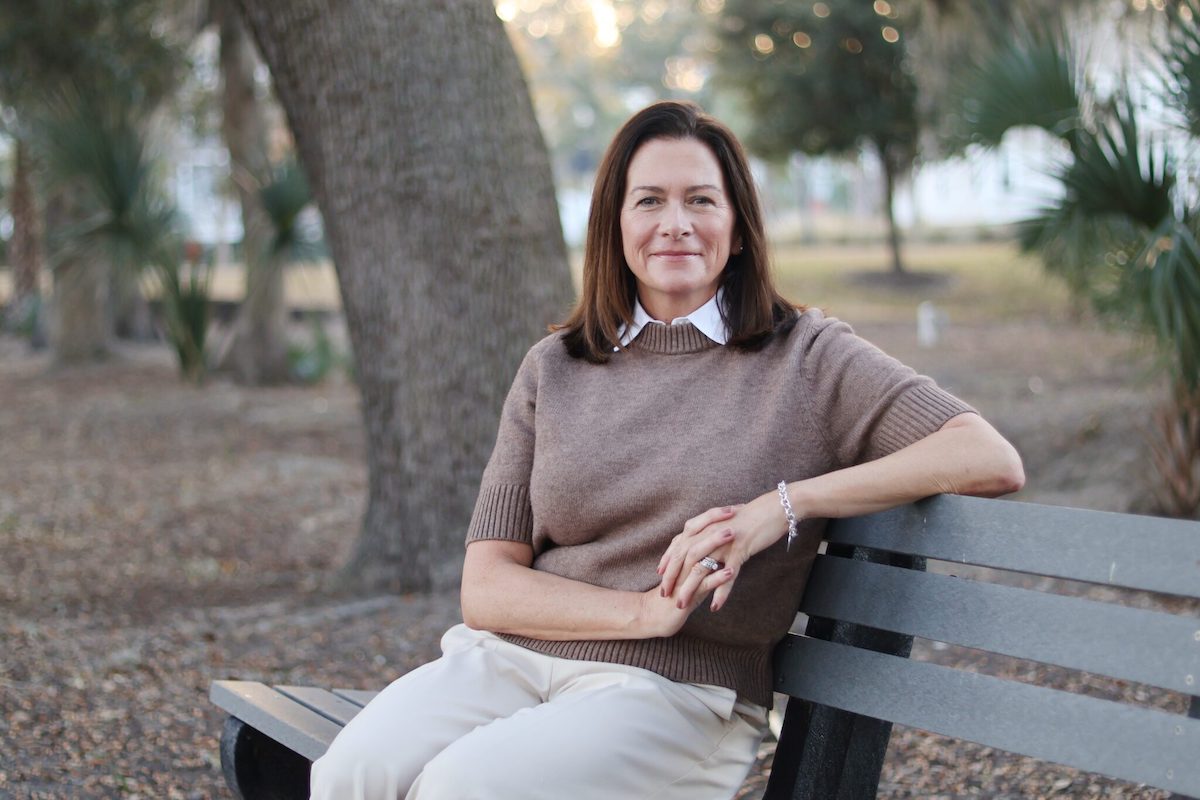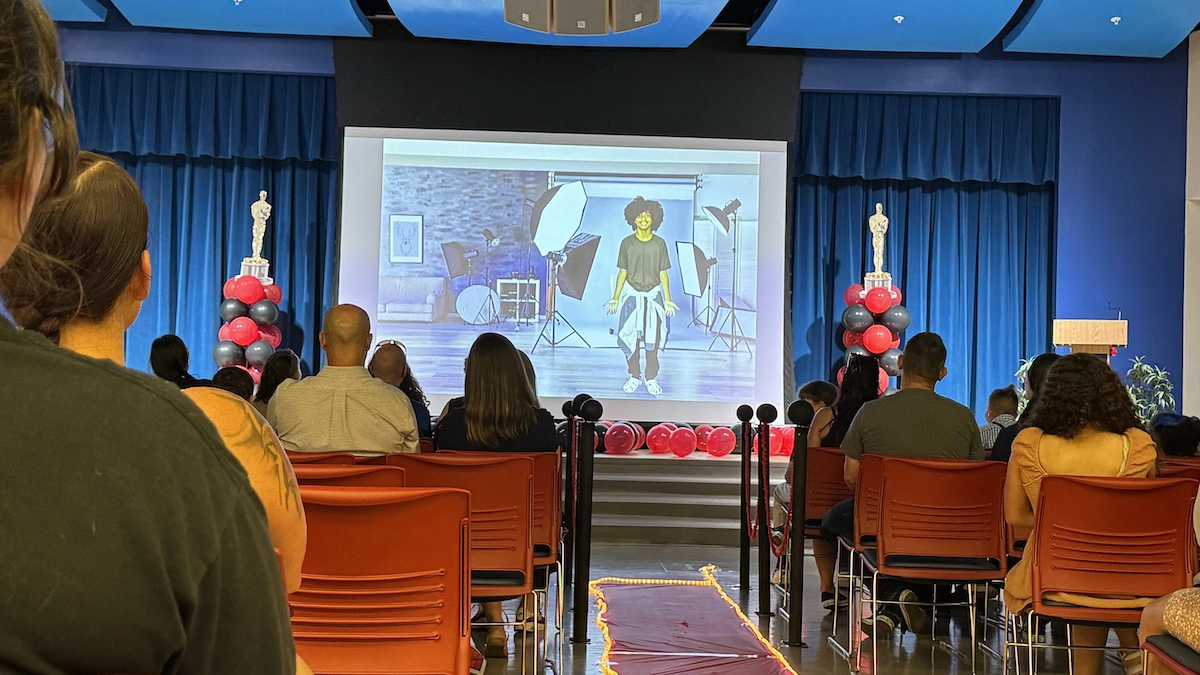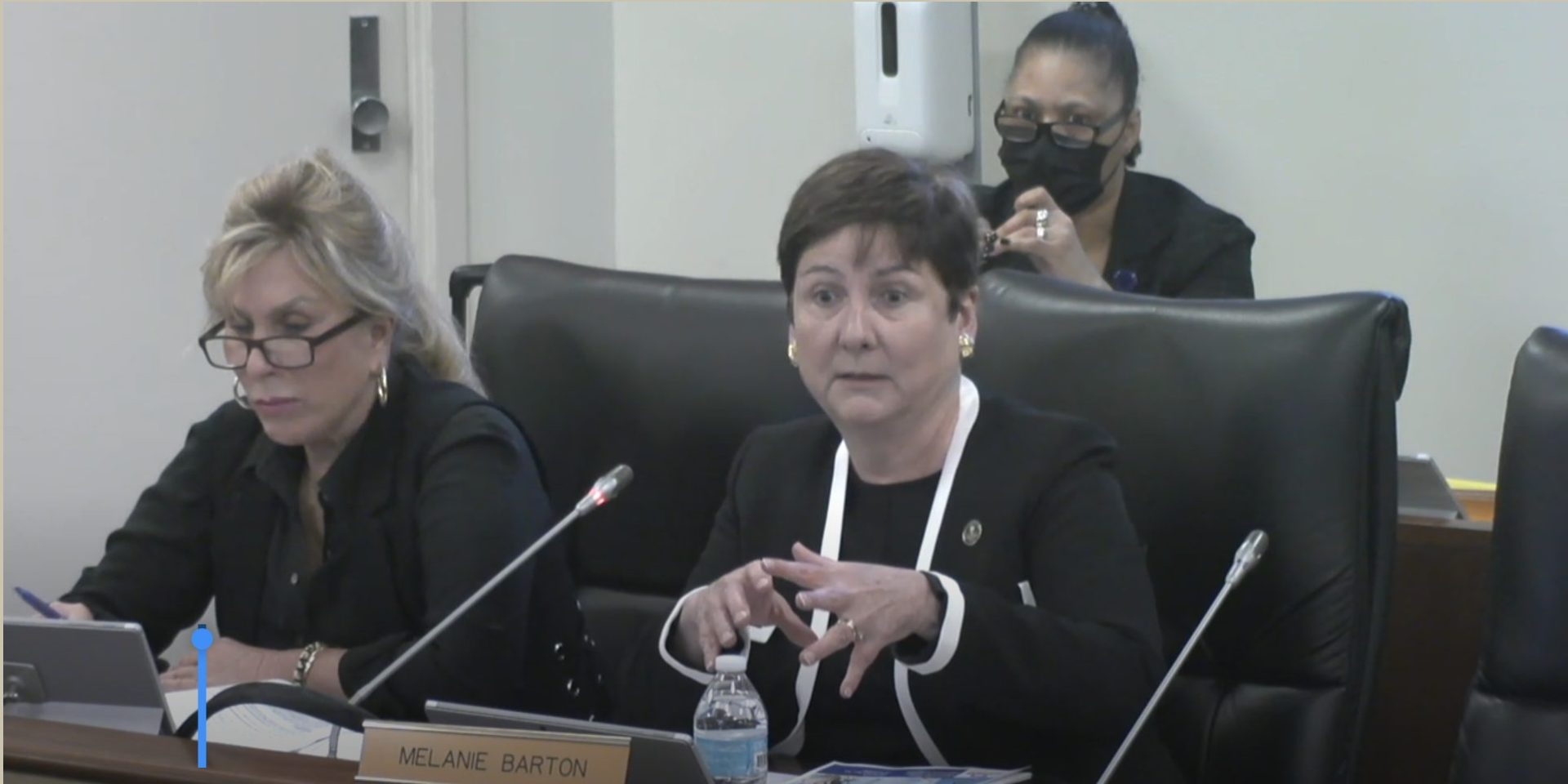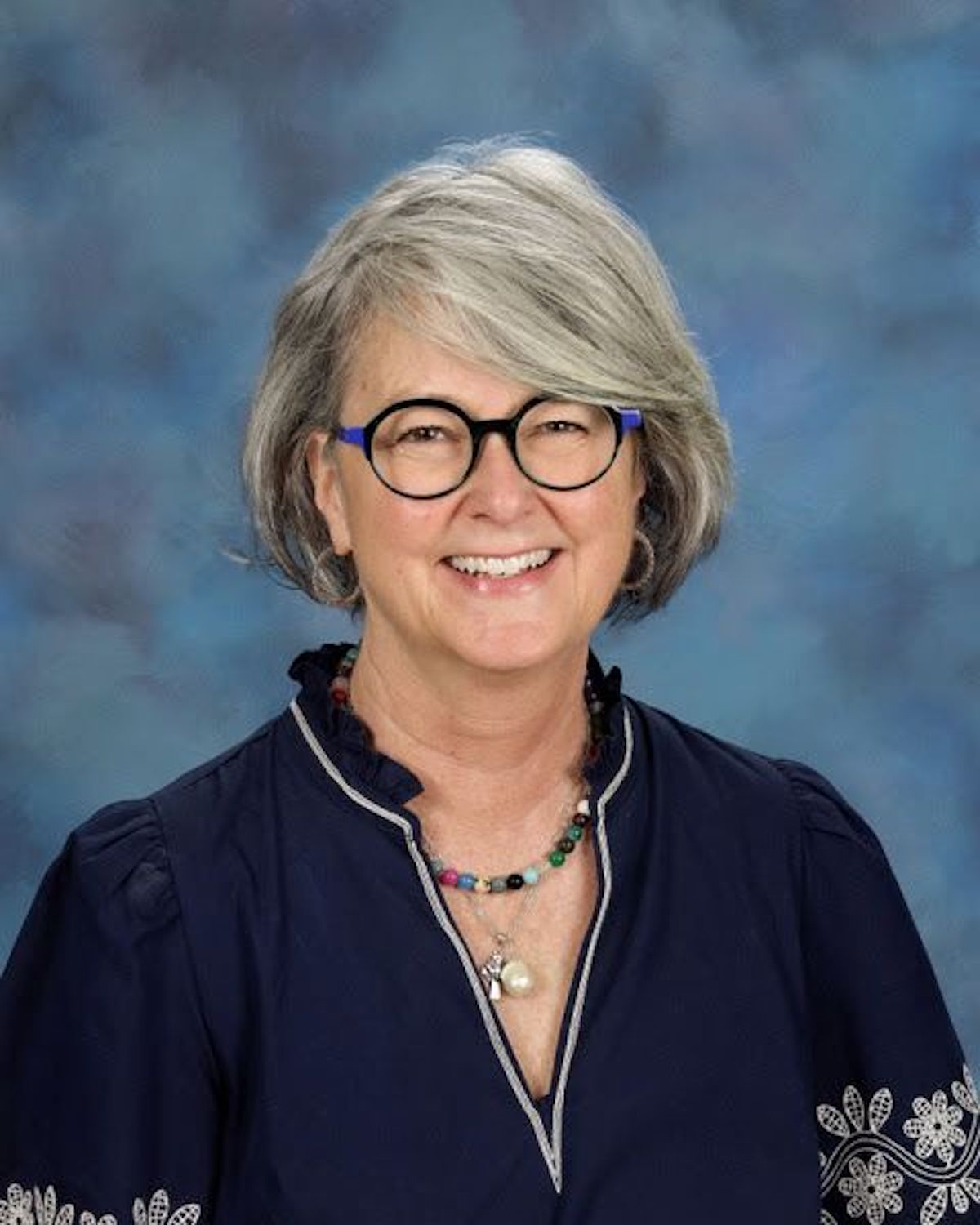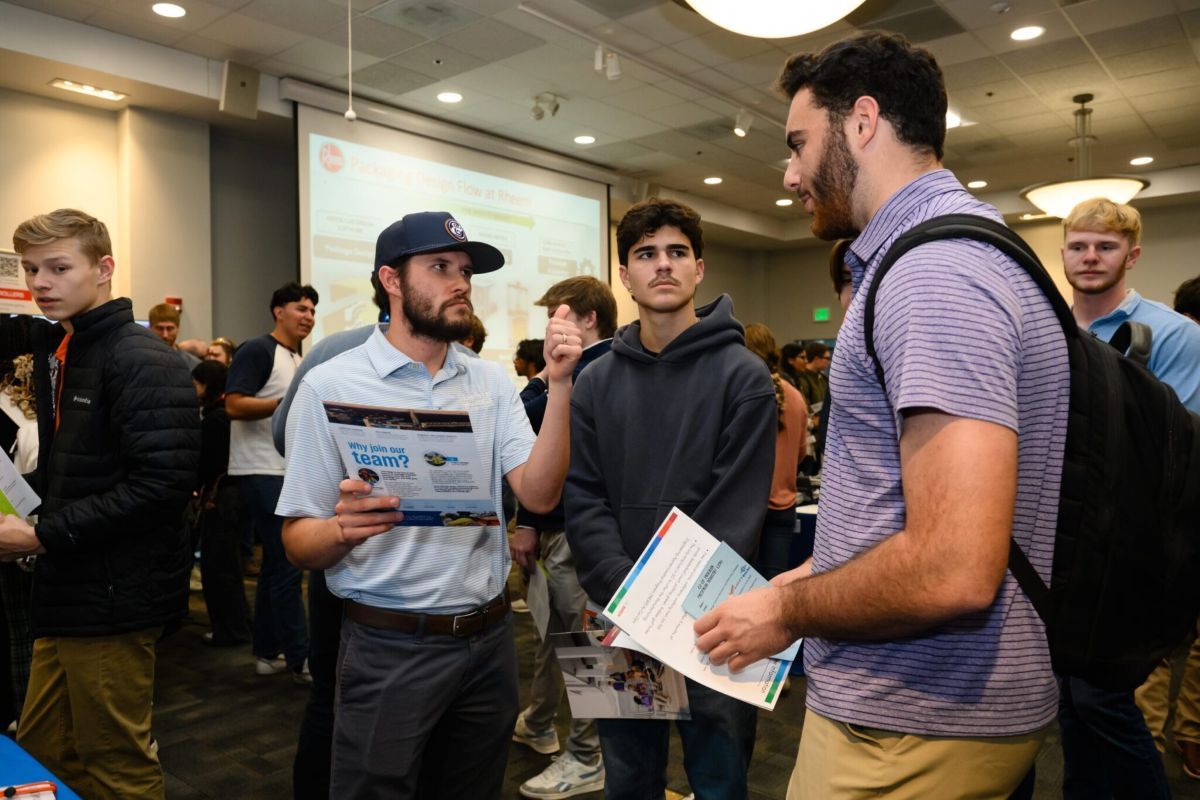More than 1,000 teens in DJJ have graduated with a diploma in 8 years; Officials want those numbers to keep increasing.
By Skylar Laird
SCDailyGazette.com
COLUMBIA — Usually when Yolanda Simmons gets a call from her son TJ Simmons’ school, it’s bad news.
So, when she got a call from the superintendent of the state Department of Juvenile Justice school district TJ was attending, her first thought was, “Oh my God, what did he do?” she told a crowd of about 100 people Friday at DJJ.
But the call was good news: TJ was coming home to Charleston from DJJ’s detention center in Columbia. And he would be able to finish his high school degree from home, she said.
When TJ Simmons finishes the one class he has left to get his diploma, he will join more than 1,000 other graduates under Superintendent Floyd Lyles’ tenure over the past eight years.
While the department is required by law to continue educating teens in its custody, those students don’t necessarily need to earn a degree. Officials want more detained juveniles to finish their degrees because that will open up more job opportunities and reduce the risk of them ending up in prison as adults, as is common among teen offenders.
“That’s 1,000 families changed forever,” Lyles said. “It gives them the opportunity to change the trajectory of their life.”
The total number of students who have either finished high school with a regular diploma or earned their GED diploma from the district is unclear, since officials said the department did not track the numbers consistently until 2016.
But the number of graduates has increased, Lyles said. In 2015, the year before he started, 48 students received a high school diploma or its equivalent. Last year, it was 111, he said.
That’s a small portion of the school, which regularly has at least 400 students in its year-round program.
But the numbers don’t add up the same way as a traditional high school. Students might leave before they graduate, and, by the nature of the system, teens in a detention center are less likely to finish school, Lyles said.
“Most of these youth were not successful in school at home and were in trouble with the community — that’s why they’re here,” Lyles said. “We went through fire to get to 1,000 graduates.”
After 17-year-old Sean Schurer was expelled from his Anderson County high school and sent to a DJJ facility, he assumed he would never finish his high school degree, nonetheless anything past that, he told reporters Friday.
While at DJJ’s Upstate evaluation center, though, he realized this was his second chance at finishing school. Along with completing his required classes, he earned a certificate in esports and cybersecurity through the Blaze Fire Games’ online program.
Schurer, no longer in DJJ’s facilities, earned his diploma in March and plans to attend Tri-County Technical College to pursue welding, he said.
“I now have the opportunity to go to college, something I probably never would have had before,” Schurer said.
The department has its own college program for students who graduate high school but remain in a DJJ facility.
Allen University, a private historically black college in Columbia, offers a few college courses. Students can also enroll online at other historically black colleges — Vorhees College in Denmark, Morris College in Sumter, or South Carolina State University in Orangeburg, the state’s only public historically black university — to earn a broader range of credits that they can then use toward their degree at their chosen college or transfer elsewhere.
Jaenyah Heath, a 19-year-old from Rock Hill, has been at the Broad River Road Complex for more than two years, she said.
“It’s been very challenging,” Heath said. “Many times, I feel like I want to give up.”
But she hasn’t, she added. She earned her GED diploma in 2022 and is starting her second year studying criminal justice at Vorhees College while still at the long-term complex.
The program is not without its issues. Officials have struggled to find enough classroom space at the overcrowded detention center. In May, the 72-bed facility housed 92 teens, and more are expected after Richland County Council voted to close the juvenile wing of the county jail.
Officials have considered putting a temporary classroom on top of the outdoor sports court or adding more classes in the evenings to make sure everyone is able to attend classes comfortably, Director Eden Hendrick said last month.
Ensuring the children housed in DJJ facilities are getting a good education is one of the most important things the department does, Hendrick said Friday.
“If we can’t give anything else to the youth in the system, we can give them an education,” she said.
Skylar Laird covers the South Carolina Legislature and criminal justice issues. Originally from Missouri, she previously worked for The Post and Courier’s Columbia bureau.
S.C. Daily Gazette is part of States Newsroom, the nation’s largest state-focused nonprofit news organization.


